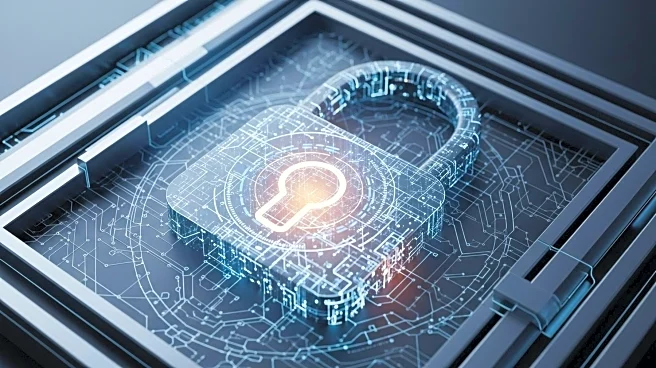What's Happening?
The information security industry is being urged to move beyond the traditional CIA triad—confidentiality, integrity, and availability—as it struggles to address modern threats. Experts argue that the triad, developed during the Cold War era, is insufficient for today's challenges posed by cloud infrastructure, AI, and global supply chains. The outdated model fails to incorporate essential concepts like authenticity, accountability, and safety, leaving gaps that attackers exploit. A call for a new, layered security model that elevates CISOs from reactive technicians to strategic business partners is gaining traction.
Why It's Important?
The limitations of the CIA triad highlight the need for a more comprehensive approach to information security that can effectively address contemporary threats. As cyberattacks become more sophisticated, organizations must adopt frameworks that prioritize resilience and adaptability. The shift from a reactive to a proactive security posture is crucial for protecting sensitive data and maintaining business continuity. By embracing new models, companies can better safeguard their assets and enhance their competitive edge in an increasingly digital world.
What's Next?
The security industry is expected to explore and develop new frameworks that integrate modern security concepts and address the evolving threat landscape. This may involve collaboration between industry leaders, government agencies, and academic institutions to create standards that reflect current technological advancements. As organizations transition to new models, they will need to invest in training and resources to ensure effective implementation and management of security strategies.
Beyond the Headlines
The call for new security frameworks reflects broader shifts in the technology landscape, where rapid innovation demands agile and forward-thinking approaches. The evolution of information security practices underscores the importance of continuous learning and adaptation in a field that is critical to national security and economic stability. The move away from outdated models signifies a cultural shift towards embracing change and fostering resilience in the face of emerging threats.









